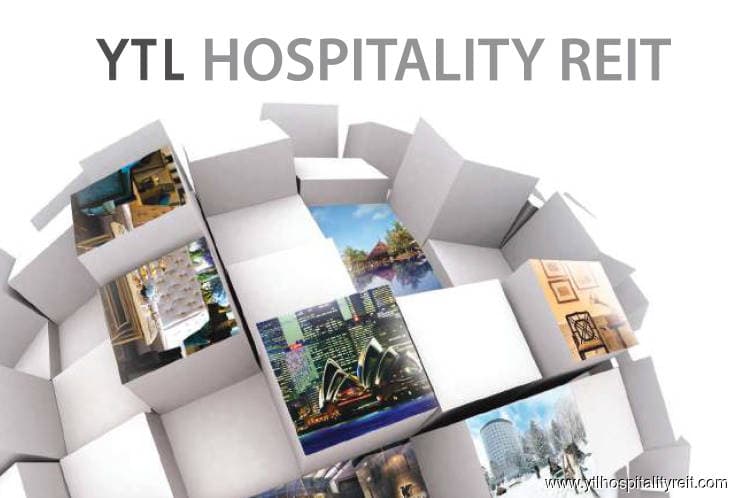
This article first appeared in The Edge Financial Daily on February 24, 2020
YTL Hospitality REIT
(Feb 21, RM1.33)
Maintain buy with a higher fair value (FV) of RM1.63: Our FV revision is based on: i) a revised target yield of 5% (from 5.5%); and ii) rolling over our valuation to financial year ending June 30, 2021 (FY21) distributable income. We lower our target yield to 5% from 5.5% in view of the possibility that Bank Negara Malaysia (BNM) may cut interest rates. We trim our forecasted financial years 2020 through to 2022 (FY20–22F) distributable income forecasts by 5% each as we factor in higher operating expenses.
YTL Hospitality REIT’s (real estate investment trust) first half of the financial year ended Dec 31, 2019 (1HFY20) distributable income of RM66 million (+2.2% year-on-year [y-o-y]) came in below our expectations but higher than consensus, making up 45% and 54% of our and consensus full-year forecast respectively. Revenue and net property income (NPI) grew by 2.2% and 6.4% respectively mainly due to the stronger performance of Malaysian and Japanese properties. YTL Hospitality REIT recommended a distribution per unit (DPU) of 1.91 sen compared to y-o-y’s 1.94 sen.
1HFY20 distributable income was flattish, mainly due to higher borrowing costs (+4.2%) and income tax (+14.1%).
Malaysian properties contributed a 1HFY20 revenue and NPI of RM70.1 million (+4.4% y-o-y) and RM66.5 million (+4.3%) respectively. The stronger revenue and NPI was mainly attributed to additional rentals recorded from JW Marriott Hotel Kuala Lumpur following the recent refurbishment which was completed in June 2019.
Japanese properties’ first quarter of FY20 revenue and NPI surged by 26.1% and 34.1% y-o-y to RM14.2 million and RM11.6 million respectively contributed by the acquisition of Green Leaf Niseko Village Hotel in September 2018.
However, Australian properties’ 1HFY20 revenue fell 0.2% to RM167.6 million while NPI grew 4.5% to RM55.7 million. Despite stronger room sales, revenue was lower mainly due to the weakening of the Australian dollar against the ringgit. The improvement in NPI was due to increased operational efficiency and cost savings.
The debt-to-total assets ratio increased to 39% versus 38% y-o-y as a result of higher investing activities, but is still below the regulatory threshold of 50%. At the current level, we believe YTL Hospitality REIT still has some room to gear up for future acquisitions.
We like YTL Hospitality REIT due to it being a hospitality REIT with exposure in the Australian market that continues to grow. At the same time, it has master leases on properties in Malaysia and Japan that provide steady incomes. We maintain “buy”. — AmInvestment Bank, Feb 21